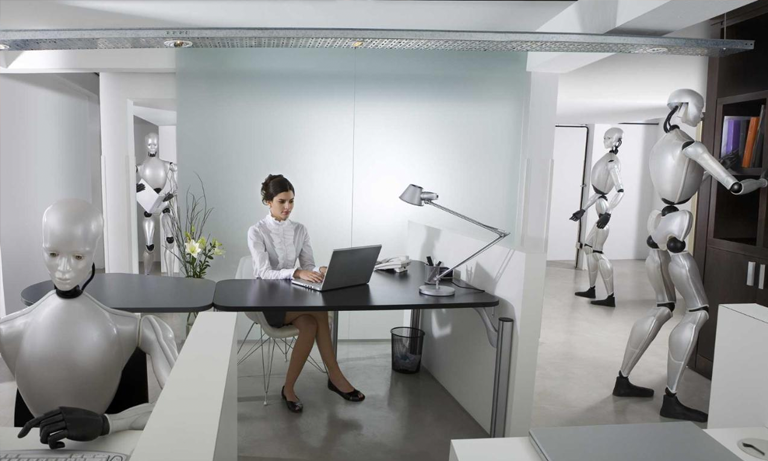 A prototype has already been released and is currently being used by around 600 companies
A prototype has already been released and is currently being used by around 600 companiesChatbots are set to become the frontline in providing basic information and support to Britain’s workforce, taking on the task of answering basic questions and providing an ever-present ‘face’ for new employees.
The interest in chatbots has seen a dramatic increase in the past few years. The progress in the complexities and implementation of this technology is only now being fully realised and looks set to finally make its impact known within the workplace.
ELIZA, arguably one of the first examples of a chatbot, was developed between 1964 and 1966 by Joseph Weizenbaum at the Massachusetts Institute of Technology (MIT). Utilising a relatively small database, the program was capable of responding to stimuli in a surprisingly human fashion. Now, roughly half a decade later, practical applications for this technology are set to make a very real entry into offices around the country.
With the popularity of office-based communication systems such as Slack, it is now fairly simple to provide a bot versed on the ins and outs of any company’s employee handbook. These programs can then disperse this information to the workforce new or old at will.
Boston-based startup Talla is developing chatbots designed for this very purpose. Armed with natural language processing systems and advanced machine learning algorithms, the next wave of programs is far more sophisticated than its predecessors.
A prototype has already been released and is currently being used by around 600 companies. Focused on providing simple to do lists and answering questions such as “When do we get paid?” or “Will we have the bank holiday off?”, Talla is already providing a very valuable resource.
The company has no plans to stop there, however, and wants to develop something far more complex, which it hopes will be capable of asking questions in addition to providing feedback in the future. It intends to provide the basic version of the program free of charge; however, the premium version it is hoping will offer so much more will incur a fee.
This is not the only application for the technology going forward and it will become increasingly likely in the coming years that we will be talking to robots more and more. Many of us are already very familiar with asking Siri to perform basic tasks or retrieve pertinent information at the drop of a hat and developing interface bots such as this is going to be a growth area.
Take HubSpot, a marketing platform, where CTO Dharmesh Shah is working on software currently known as GrowthBot. Its task is fairly simple – collating information from multiple sources to answer basic questions such as “How was traffic to the site last week?” on demand. This frees the user from having to analyse the data; instead, they can focus on responding to and working with this information.
Companies from every sector are starting to employ chatbots on Facebook, Twitter and other platforms as a basic outreach tool or persistent resource for their audience. As we approach 2020, it is looking very likely that we will have our very own R2D2 or personal assistant droid at our beck and call.
Join Over 40,000 Recruiters. Get our latest articles weekly, all FREE – SEND ME ARTICLES
Recruiters love this COMPLETE set of Accredited Recruitment & HR Training – View Training Brochure








